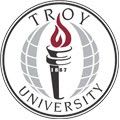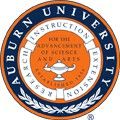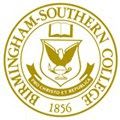Best Alabama Colleges & Universities

Alabama's dynamic higher education system can serve virtually any student goal and, hard data suggests, do so successfully. Residents who go to college are much more likely than those in other states to complete their degrees: the state's 2013-14 four-year college graduation rate was eight percent higher than the national average. Alabama is home to nearly 60 colleges and universities, including 25 community colleges, 14 four-year universities and several private schools. Some of these institutions receive national recognition for program quality and other success factors. Which Alabama colleges are the best? Continue reading to learn more about rankings, accreditation, costs, financial aid, planning resources and more for colleges in Alabama.
Alabama College Leaderboard: Rankings
Future Alabama college students have much to consider when researching programs. Some students focus on tuition costs and financial aid, for instance, while others are more concerned with class sizes, graduation rates or alumni earnings. Finding the right balance can be tricky. Students can use this ranking to identify Alabama colleges that scored highest in overall quality and value.
Rankings Methodology
- Located in Alabama
- Public or private not-for-profit
- Institutionally accredited
- At least 10 total programs
- Median annual alumni earnings 10 years after entering the college
- In-state tuition and fees for undergraduates
- Student/teacher ratio
- 6-year graduation rate
- % of students receiving institutional financial aid (first-time, full-time undergrads)
- Average amount of institutional aid awarded per student (first-time, full-time undergrads)
- Availability of placement services upon completion
- Availability of academic/career counseling services
- Availability of employment services
- 3-year student cohort loan default rate
Integrated Postsecondary Education Data System (IPEDS): National Center for Education Statistics
Latest 'Final Release' data available as of Fall 2016 College Scorecard: U.S. Department of Education
2-Year Programs
Enterprise State Community College
Gadsden State Community College
Wallace State Community College – Hanceville
Southern Union State Community College
Lurleen B Wallace Community College
H Councill Trenholm State Technical College
Jefferson Davis Community College
J F Drake State Community and Technical College
Faulkner State Community College
Jefferson State Community College
Northeast Alabama Community College
Wallace Community College – Dothan
Bevill State Community College
Wallace Community College – Selma
Lawson State Community College-Birmingham Campus
Snead State Community College
Bishop State Community College
Calhoun State Community College
Remington College-Mobile Campus
Shelton State Community College
Central Alabama Community College
Chattahoochee Valley Community College
Northwest-Shoals Community College
Alabama Southern Community College
Reid State Technical College
J F Ingram State Technical College
4-Year Programs
Samford University
University of Alabama at Birmingham
Spring Hill College
Auburn University
University of Alabama in Huntsville
The University of Alabama
Birmingham Southern College
University of Mobile
Troy University
University of South Alabama
Amridge University
Huntingdon College
Judson College
Tuskegee University
Oakwood University
University of North Alabama
Jacksonville State University
University of Montevallo
Faulkner University
Athens State University
Alabama State University
University of West Alabama
Auburn University at Montgomery
Alabama A & M University
Stillman College
Talladega College
Miles College
Search, Compare and Research Alabama Colleges
College is a major investment in one's future, so prospective students should evaluate schools carefully. Colleges in Alabama offer a diverse field of options from which to choose. This search tool allows aspiring students to research Alabama colleges and universities using criteria like tuition, location, enrollment and degree level.
Alabama College Planning and Outreach Initiatives
The U.S. Census Bureau reports that 84 percent of Alabamans had high school diplomas in 2010, yet only 23 percent had bachelor's or graduate degrees. The state is taking great strides to improve those numbers. Several colleges, non-profits and state organizations are helping fill the gap through dedicated outreach programs that enhance college readiness, affordability and more. Here are some of them.
Blueprints College Access InitiativeBlueprints College Access Initiative promotes college readiness among Alabama's low-income high school students. The organization uses a peer-mentoring system connecting high school students with current college students. It also offers in-classroom workshops, after-school tutoring and support, financial aid information, and relationships with college students and professors to create a "college-positive" culture.
Gear Up AlabamaThe Black Belt region of Alabama is historically one of the poorest in the state with more than 25 percent of adults living below the poverty line. Higher education rates also tend to be low. Gaining Early Awareness and Readiness for Undergraduate Programs, or GEAR UP, is a grant program that increases the number of college-ready low-income students. According to the organization, it services nearly 9,300 students in 52 schools across the region.
AAMU-ASU Transfer Scholarship ProgramThis scholarship program through Alabama A&M University in Huntsville and Alabama State University in Montgomery offers graduates of any public community or technical college the opportunity to complete a four-year degree for free. Each university can choose up to 500 awardees each year through 2018, its final year, when they choose up to 250 award winners.
Cost Analysis of Colleges in Alabama
For many people, the value of a degree program hinges on both its long- and short-term financial impact. One might consider which colleges in Alabama are most affordable, produce the highest-paid graduates or provide exceptional financial aid. The following rankings clear things up.
* Institutional aid represents grant and scholarship funds directly awarded by a postsecondary institution.
* Financial aid data represents 4-year public and private nonprofit schools only.
Alabama's Most Affordable Colleges
College affordability depends on a great number of factors. Tuition, for instance, varies with one's course load, degree level and residency, while financial aid availability is another key element. Certain schools are particularly successful on the cost front. This list highlights the most affordable colleges in Alabama based on net price.
- 1.
 Amridge University
Amridge University
$7,455 - 2.
 Selma University
Selma University
$8,427 - 3.
 Talladega College
Talladega College
$9,062
- 4.
 Heritage Christian University
Heritage Christian University
$9,346 - 5.
 Huntsville Bible College
Huntsville Bible College
$10,708 - 6.
 Troy University
Troy University
$11,168
Alabama College Net Price vs. National Average
Average
Annual Net Price
Source: College Scorecard
Note: Rankings/data represent 4-year public and private nonprofit schools only.
Alabama Colleges With Top Alumni Earnings
Students want to know that their degrees will hold value in tomorrow's job market. After all, many graduates have student loans to pay off, licensing exams to pay for or professional organization membership expenses. The following clarifies which Alabama colleges have the highest-paid alumni.
- 1.
 University of Alabama in Huntsville
University of Alabama in Huntsville
$46,600 - 2.
 Samford University
Samford University
$45,800 - 3.
 Auburn University
Auburn University
$45,400
- 4.
 Spring Hill College
Spring Hill College
$43,800 - 5.
 The University of Alabama
The University of Alabama
$42,400 - 6.
 Birmingham Southern College
Birmingham Southern College
$41,900
Alabama Alumni Salaries vs. National Average
Annual Median Earnings
10 Years After Entering College
Source: College Scorecard
Note: Rankings/data represent 4-year public and private nonprofit schools only.
Colleges in Alabama That Produce the Least Student Debt
According to the Institute for College Access and Success, the average debt with which students graduated from Alabama colleges in 2015 was $29,425. This places the state in among the top 10 in the nation. Nonetheless, the same institute reported that 54 percent of students graduate with some debt. Graduates of the following institutions carry the lowest average educational debt in Alabama.
- 1.
 Athens State University
Athens State University
$18,832 - 2.
 University of North Alabama
University of North Alabama
$21,750 - 3.
 Auburn University at Montgomery
Auburn University at Montgomery
$21,791
- 4.
 Auburn University
Auburn University
$22,250 - 5.
 University of West Alabama
University of West Alabama
$22,500 - 6.
 University of Alabama at Birmingham
University of Alabama at Birmingham
$23,117
Alabama College Grad Debt Vs. National Average
Median Federal Student
Loan Debt After Graduation
Source: College Scorecard
Note: Rankings/data represent 4-year public and private nonprofit schools only.
Cost of Living for Alabama College Students
Alabama already offers a lower-than-average cost of living, but those costs still vary by city or region. This reality can have a huge impact on students' budgets. Various factors contribute: one college town might offer the lowest living costs while another provides the lowest food costs. This table gives an in-depth view of these factors across the most populous cities in the state.
| area | composite index | housing | groceries | utilities | transportation | health care | misc. |
|---|---|---|---|---|---|---|---|
| Tuscaloosa | 99% | 75% | 104% | 107% | 104% | 82% | 115% |
| Statewide Average | 91% | 75% | 99% | 101% | 93% | 86% | 98% |
| Montgomery | 93% | 85% | 98% | 107% | 91% | 82% | 95% |
| Mobile | 92% | 76% | 102% | 107% | 96% | 88% | 95% |
| Huntsville | 91% | 71% | 93% | 100% | 95% | 96% | 101% |
| Birmingham | 91% | 80% | 99% | 98% | 91% | 85% | 95% |
Source: The Council for Community and Economic Research
College Accreditation in Alabama
Accreditation certifies that institution meets established quality standards and best practices. Alabama colleges are regionally accredited by the Southern Association of Colleges and Schools Commission on Colleges (SACSCC). Some programs can also be nationally accredited within specific fields and disciplines. Examples of programmatic accreditation organizations:
- The American Council for Construction Education (ACCE) is a global advocate of quality construction programs and accredits specific schools, like the McWhorter School of Building Science at Auburn University.
- The Council on Academic Accreditation in Audiology and Speech-Language Pathology (CAA ASHA) certifies programs at University of Alabama Tuscaloosa, University of Montevallo, and University of South Alabama.
- The Commission on Collegiate Nursing Education (CCNE) oversees the nursing programs at colleges like Jacksonville State University, Samford University and University of Mobile.
Alabama College City Spotlight
Birmingham
According to the 2010 US Census, Birmingham is the biggest city in Alabama with more than 212,000 residents. The city has nine colleges and community colleges, and many post-doctoral schools in fields like dentistry, law and engineering. Here are some of its higher education institutions.
| College Name | School Type | Annual Net Price | Annual Median Earnings 10 Years After College Only includes former students who received federal financial aid. |
|---|---|---|---|
 Jefferson State Community College Jefferson State Community College |
Public | $8,799 | $30,300 |
| Established in 1965, JSCC serves fewer than 10,000 students across four campuses and has an average student age of 24 years. The community college is a leading producer of nursing degree graduates. It is also home to the Instructional Technology Academy, which focuses on professional development in technology-related fields. | |||
 Samford University Samford University |
Private not-for-profit | $24,093 | $45,800 |
| SU is one of Alabama's top private Christian schools. It was founded in 1841, and has 5,206 students. Students can choose from fields like arts and sciences, business, divinity, education, law, nursing, and public health. It has 30 undergraduate degree programs and a 93 percent placement rate (into jobs or graduate schools). | |||
 University of Alabama at Birmingham University of Alabama at Birmingham |
Public | $14,805 | $40,300 |
| UAB is a fast-growing research institution and medical center. In 1936 it was initially opened as an extension of the University of Alabama, but as of the 2016 spring semester there were 10,839 undergraduates enrolled, and 17,189 students total. Students don't have to study medicine; the university offers degrees in everything from anthropology and musical theater to accounting and mechanical engineering. | |||
Tuscaloosa
Tuscaloosa's 2010 population was 95,334 - the fifth largest in the state - and University of Alabama students account for nearly a third of it. This institution, along with others in the town, translates to a high college attainment rate.
| College Name | School Type | Annual Net Price | Annual Median Earnings 10 Years After College Only includes former students who received federal financial aid. |
|---|---|---|---|
 Shelton State Community College Shelton State Community College |
Public | $8,587 | $24,300 |
| SSCC is a public institution that strives to support its students through its commitment to excellence. The school has a complete environment for its students, with athletics, clubs and numerous degree programs. Among the fields one can study are industrial technologies, culinary arts, or behavioral sciences. | |||
 Stillman College Stillman College |
Private not-for-profit | $17,473 | $24,700 |
| A private college, Stillman is committed to providing a strong liberal arts education to its students. The school offers a variety of programs that are designed to benefit a diverse population through quality academics at various levels. The school is affiliated with the Presbyterian Church and has fewer than 1,000 students. Across 11 disciplines, the school had a completion rate of 78.8 percent in the fall of 2014. | |||
 The University of Alabama The University of Alabama |
Public | $20,916 | $42,400 |
| By far the biggest university in Alabama, UA is also the oldest public institution. It had 37,100 students in fall of 2015. In addition to its diverse academic landscape, UA is also known for its stellar athletics. Teams in five different sports have secured 25 national championships. One can easily find Crimson Tide fans all over the country. | |||
Source: College Scorecard
Resources for Prospective Alabama College Students
Aspiring students looking to go to college in Alabama have many online resources at their disposal. Continue your research at the following Alabama higher education websites.
This resource explains Alabama college financial aid programs in detail, including who may apply, program descriptions and application procedures.
Alabama Commission on Higher EducationACHE gives prospective students and their families information on grant and financial aid programs, and can be a resource for searching for state-wide initiatives and improvements on higher education in the state.
Alabama Communities of ExcellenceACE is a non-profit organization formed to help participating communities establish and prepare for a more vibrant future. Prospective participants must have a commitment to the ACE program and be able to support its ideals.
Alabama Community College SystemHub for all relevant information for Alabama's two-year community colleges. Info includes veterans' services, adult education and job opportunities.
Alabama State Department of EducationFrom kindergarten through post-secondary education, this site has information for students at all levels.
College Affordability and Transparency CenterThis program, through the US Department of Education, can help students navigate the price of going to different colleges in Alabama.
Higher Education PartnershipThis organization advocates for Alabama's 14 public universities and colleges and their students.
Southern Association of Colleges and SchoolsSACS is the primary accreditation agency for colleges in Alabama, and has information on its members.
LearnHowToBecome.com is an advertising-supported site. Featured or trusted partner programs and all school search, finder, or match results are for schools that compensate us. This compensation does not influence our school rankings, resource guides, or other editorially-independent information published on this site.
View the most relevant programs for your interests and compare them by tuition, acceptance rate, and other factors important to you.